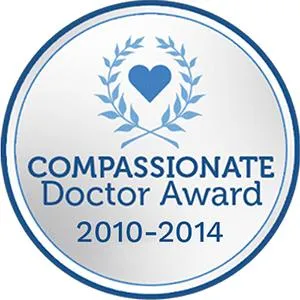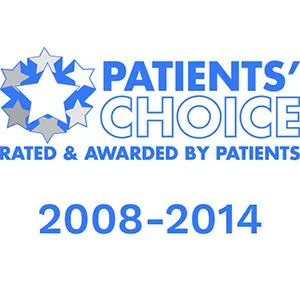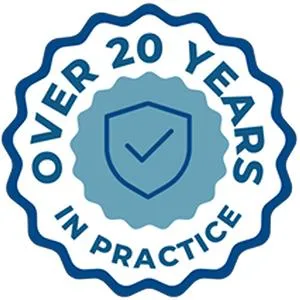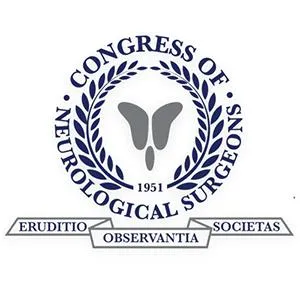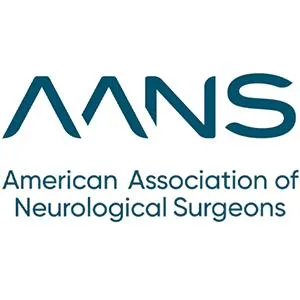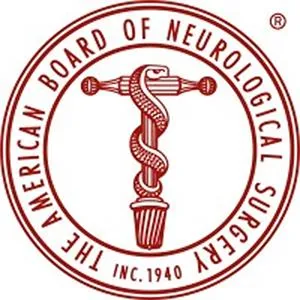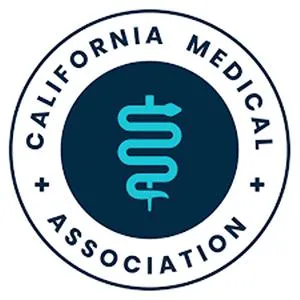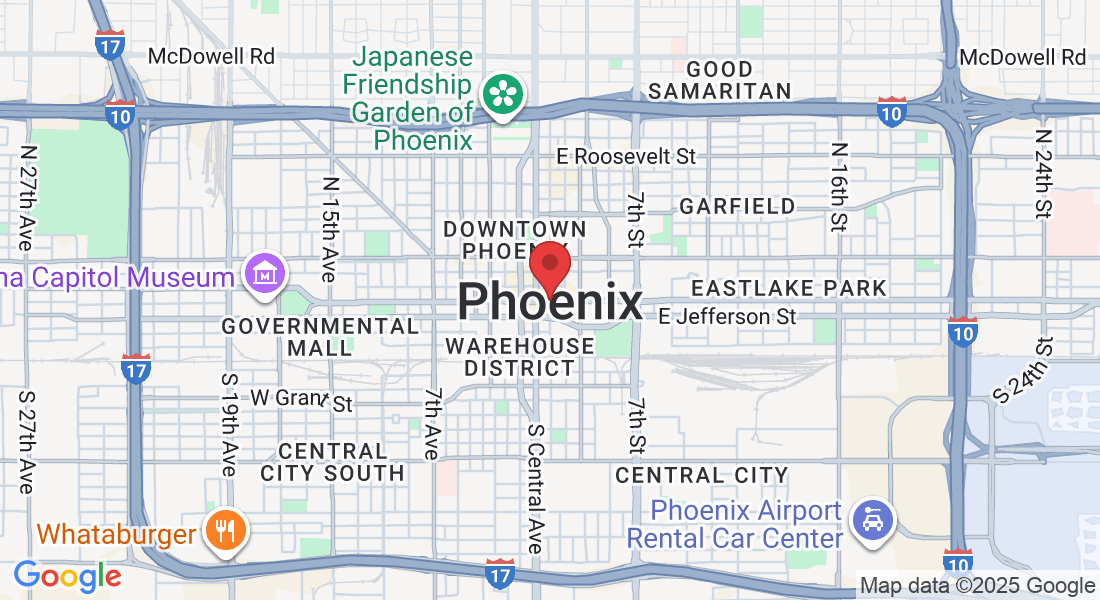Spine Nerve Conditions
Radiculopathy
Understanding Nerve Root Irritation in the Spine
When a spinal nerve root becomes compressed or irritated as it exits the spinal canal, the condition is called radiculopathy. Many people know it by another name — “pinched nerve.” Depending on where it occurs, radiculopathy can cause pain, tingling, numbness, or weakness in the arms or legs. At Desert Spine and Pain, we treat radiculopathy every day. Led by Dr. David L. Greenwald, M.D., FAANS, FACS, one of the nation’s leading neurosurgeons, our Phoenix team provides accurate diagnosis, compassionate reassurance, and stepwise treatment starting conservatively and advancing only when needed.

Over 100 5-Star Reviews!

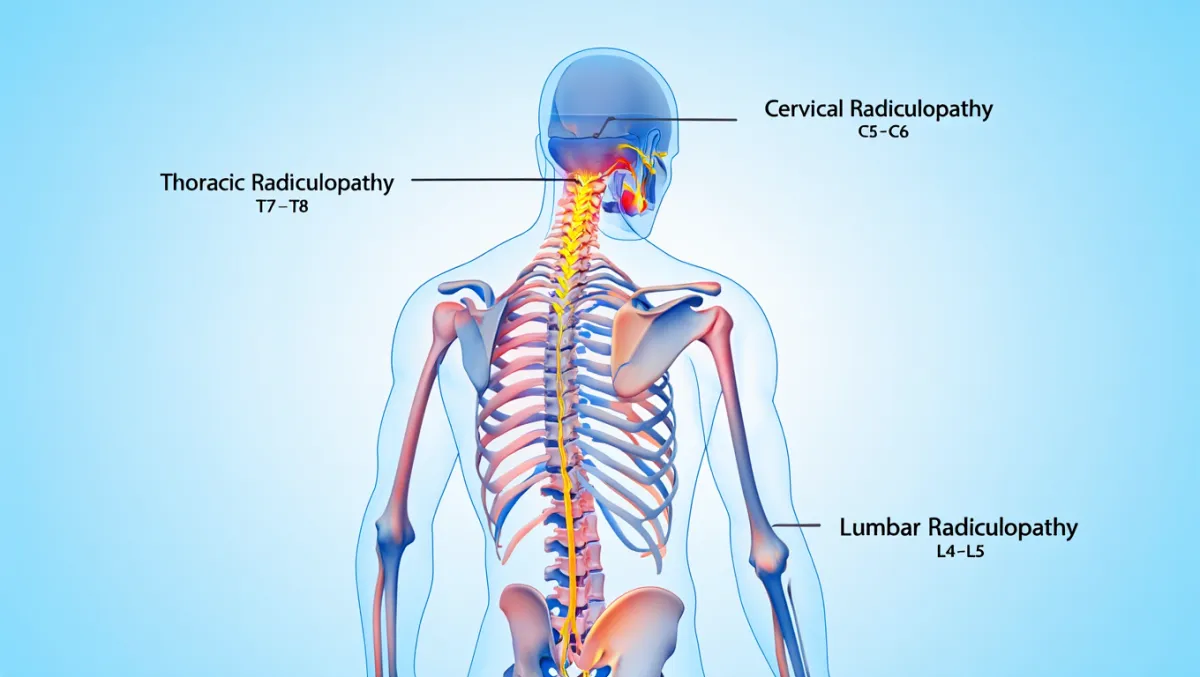
What Is Radiculopathy?
Radiculopathy happens when something compresses or inflames a spinal nerve root. This can occur in different regions:
Cervical radiculopathy (neck) – Causes pain, tingling, or weakness in the shoulders, arms, or hands
Thoracic radiculopathy (mid-back) – Rare, but may cause pain radiating around the ribs or chest
Lumbar radiculopathy (lower back) – The most common, often called sciatica, with pain radiating down the leg
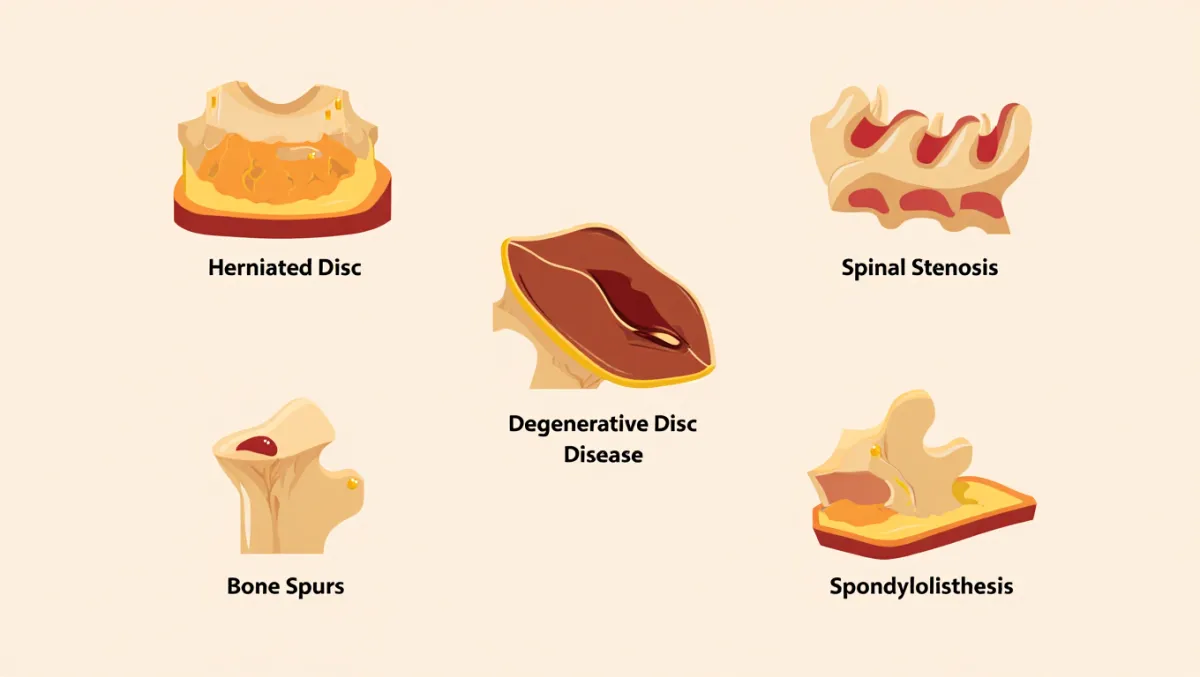
Causes and Risk Factors
Herniated disc – The most common cause See Herniated Disc
Spinal stenosis – Narrowing of the canal or foramina See Spinal Stenosis
Bone spurs (osteophytes) – From arthritis or degeneration
Spondylolisthesis – Slipped vertebrae compressing a nerve root
Degenerative disc disease – Collapse of disc space reducing nerve room
Trauma or injury – Fractures, swelling, or dislocations
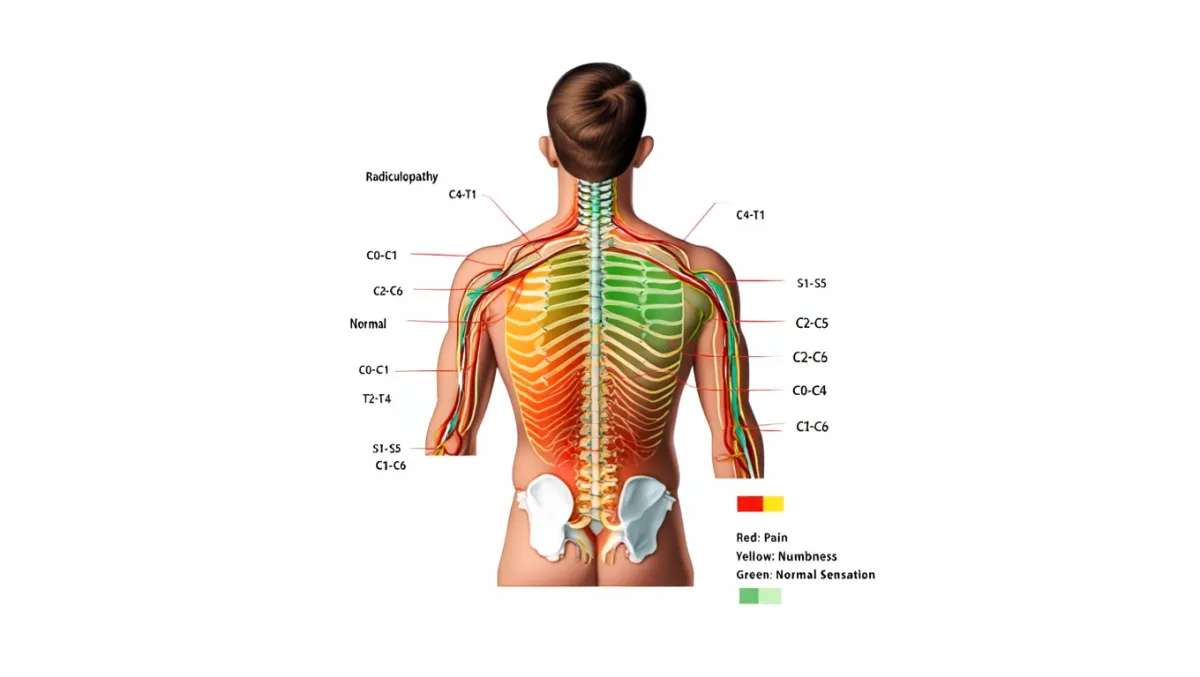
Symptoms of Radiculopathy
Radiating pain (leg pain from lumbar nerves, arm pain from cervical nerves)
Tingling or “pins and needles”
Numbness in the extremities
Weakness in the muscles served by the compressed nerve
Difficulty walking, gripping, or lifting depending on nerve affected
Urgent symptoms: sudden weakness, loss of bowel/bladder control, or inability to walk require immediate evaluation.
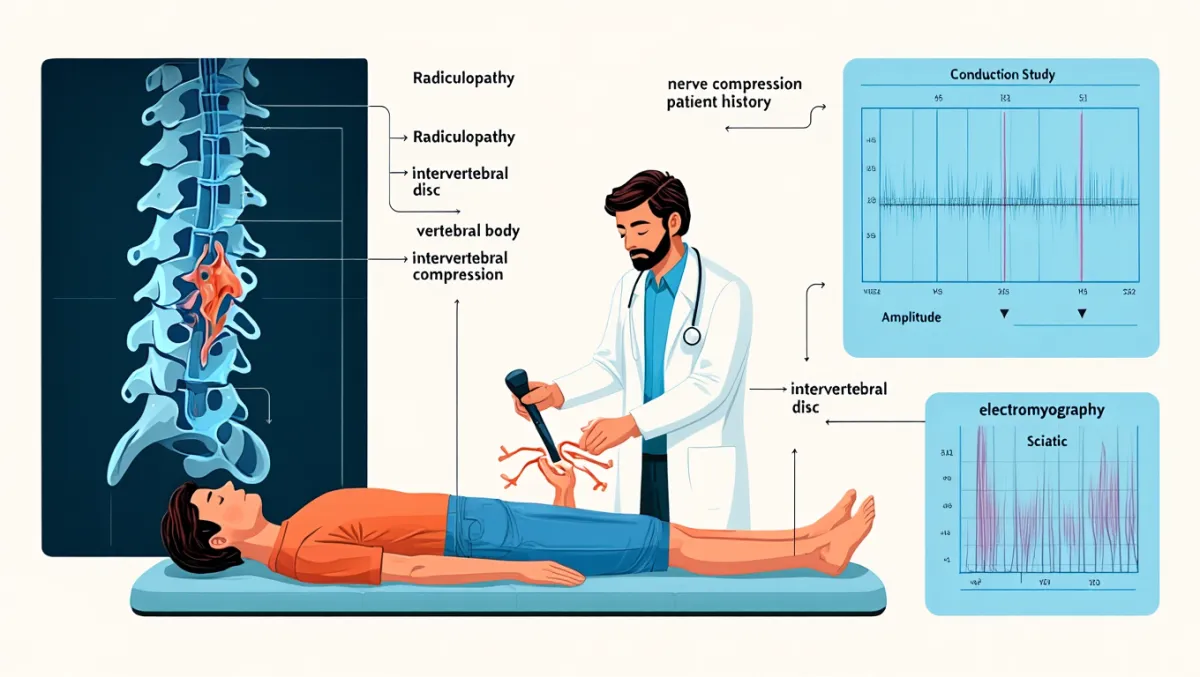
Diagnosis
At Desert Spine and Pain, evaluation includes:
Medical history & neurological exam – Checking reflexes, strength, sensation, and gait
Imaging – MRI is the best test for discs, nerves, and stenosis
X-rays – To evaluate alignment and arthritis
Electrodiagnostic testing (EMG/NCV) – Measures nerve and muscle function in complex cases
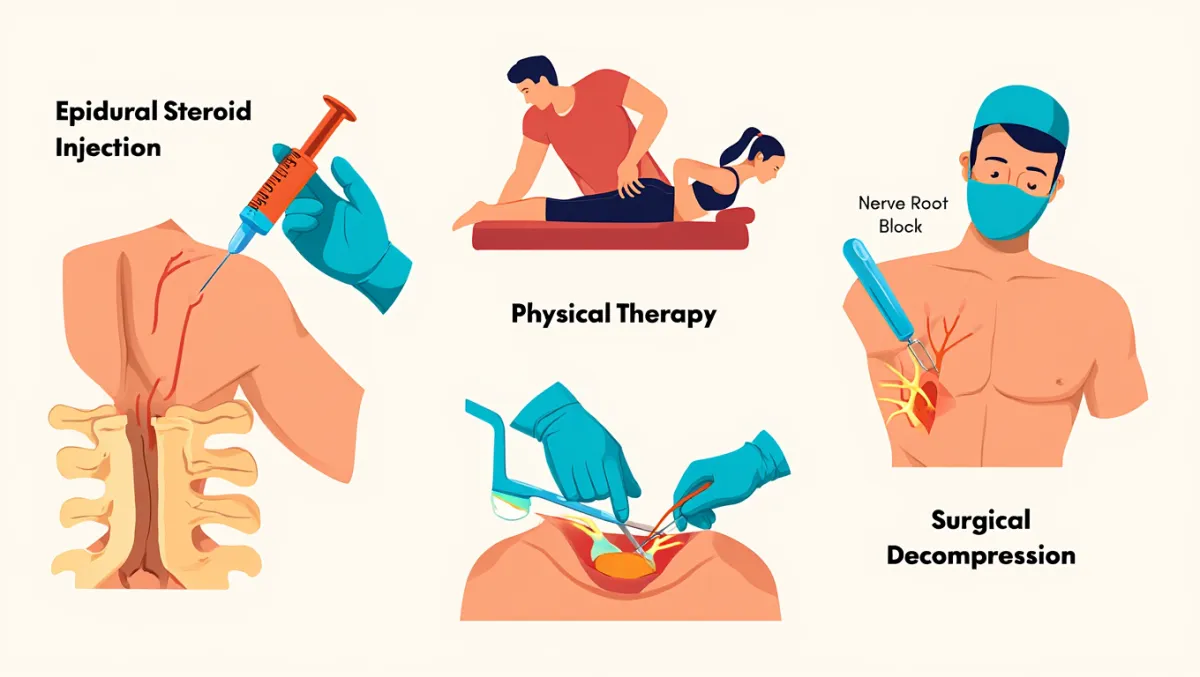
Treatment Options
Non-Surgical Care
Rest and activity modification
Medications (anti-inflammatories, muscle relaxants)
Physical Therapy for posture, core strength, and flexibility
Ergonomic adjustments (desk setup, lifting mechanics)
Epidural Steroid Injections to reduce nerve inflammation
Surgical Care
If symptoms persist or neurological deficits develop:
Microdiscectomy – Removes herniated disc material pressing on a nerve
Laminectomy / Foraminotomy – Enlarges narrowed nerve passageways
Minimally Invasive Surgery (MIS) – Small incisions, less disruption, quicker recovery
Fusion – Only if instability is present
Recovery Timeline
Conservative care – Many improve within 6–12 weeks
Injections – Relief may last months, often allowing PT progress
Surgery – MIS microdiscectomy patients often return to activity in 2–6 weeks; fusion takes several months
Why Choose Desert Spine and Pain?
Nationally recognized neurosurgeon – Dr. Greenwald has advanced expertise in complex nerve compression cases
Stepwise approach – Conservative care first, with surgery only if needed
Advanced techniques – MIS options for faster recovery
Compassionate care – Helping patients feel reassured and confident at every step
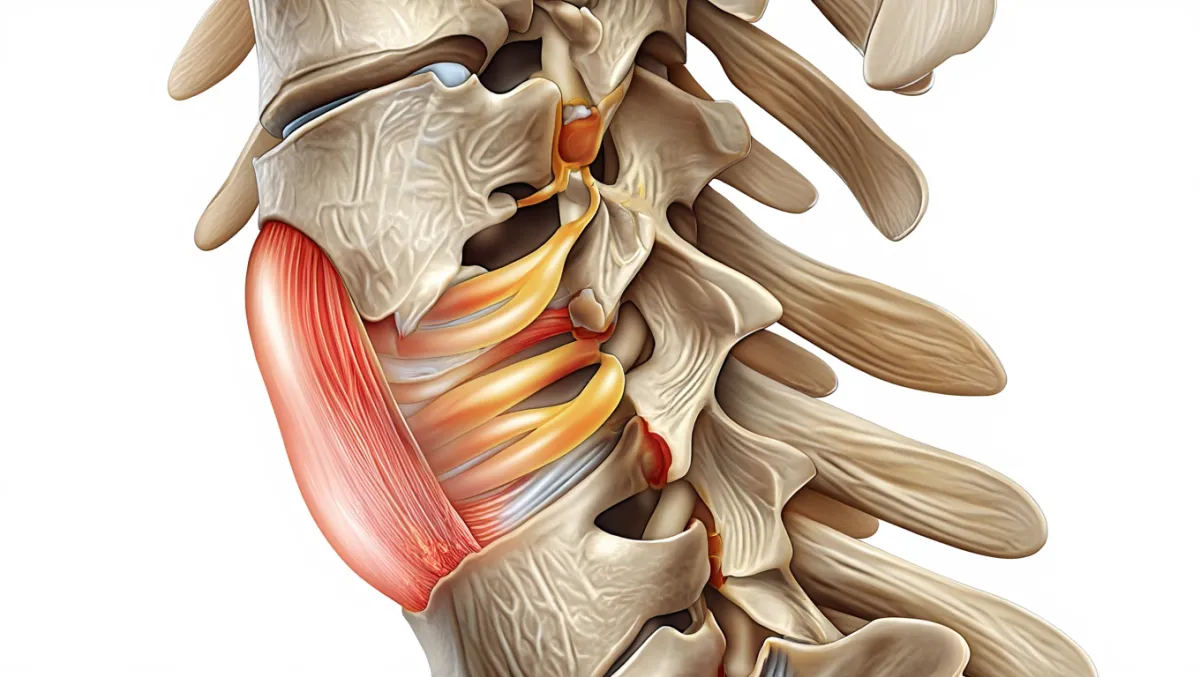
Frequently Asked Questions
Is radiculopathy the same as a pinched nerve?
Yes. Radiculopathy is the medical term for symptoms caused by a pinched nerve root.
What’s the difference between radiculopathy and myelopathy?
Radiculopathy affects a single nerve root, while myelopathy is compression of the spinal cord itself.
Do all radiculopathy cases need surgery?
No. Most improve with conservative care, including PT and injections. Surgery is for persistent or severe cases.
Can radiculopathy cause permanent damage?
If untreated, prolonged compression may lead to permanent weakness or numbness. Early treatment reduces this risk.
How does Desert Spine and Pain treat radiculopathy differently?
We provide precise diagnostics, conservative-first care, and minimally invasive surgical options — under the leadership of Dr. Greenwald.


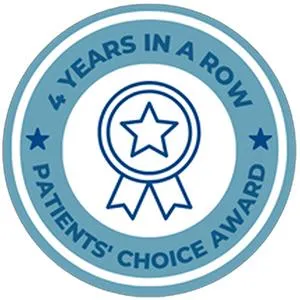
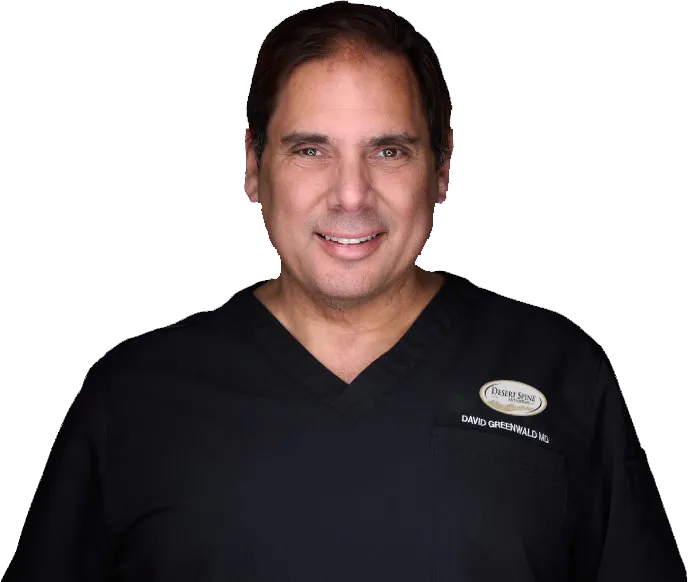
Dr. David L. Greenwald, MD
Neuro-Spine Surgeon
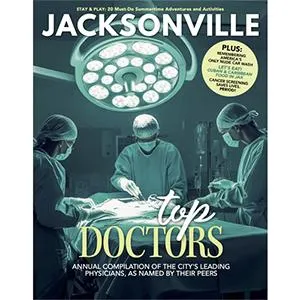
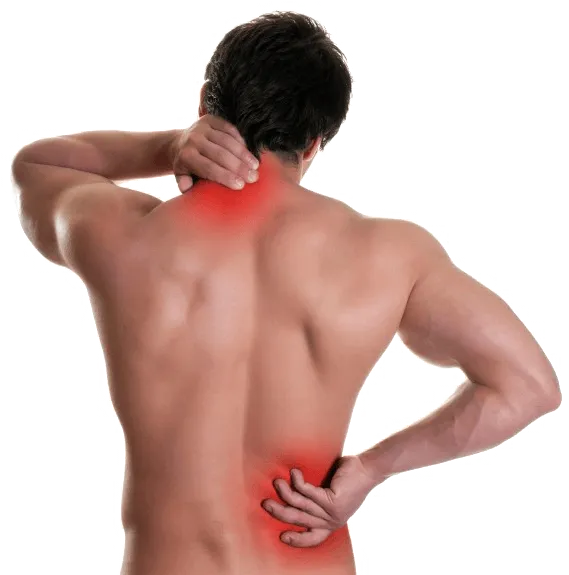
Call Now!
Desert Spine and Pain
A Spine Specialist is standing by.
Relief is just a phone call away!
Available Around the Clock.
Phone: (602) 566-9500
Email: [email protected]
Contact Us
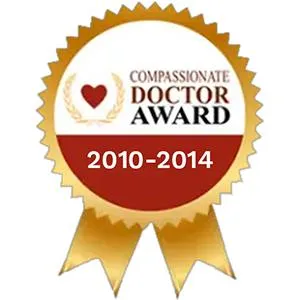
Schedule a Radiculopathy Consultation
If you’re experiencing radiating pain or nerve-related symptoms consistent with radiculopathy, Dr. Greenwald and his compassionate team are here to help. With a patient-first approach, we’ll pinpoint the root cause of your pain and design a treatment plan to restore comfort and function. Every step you take toward addressing your symptoms brings you closer to living with confidence and ease. Schedule your consultation today and take the first step toward lasting relief and better spinal health.
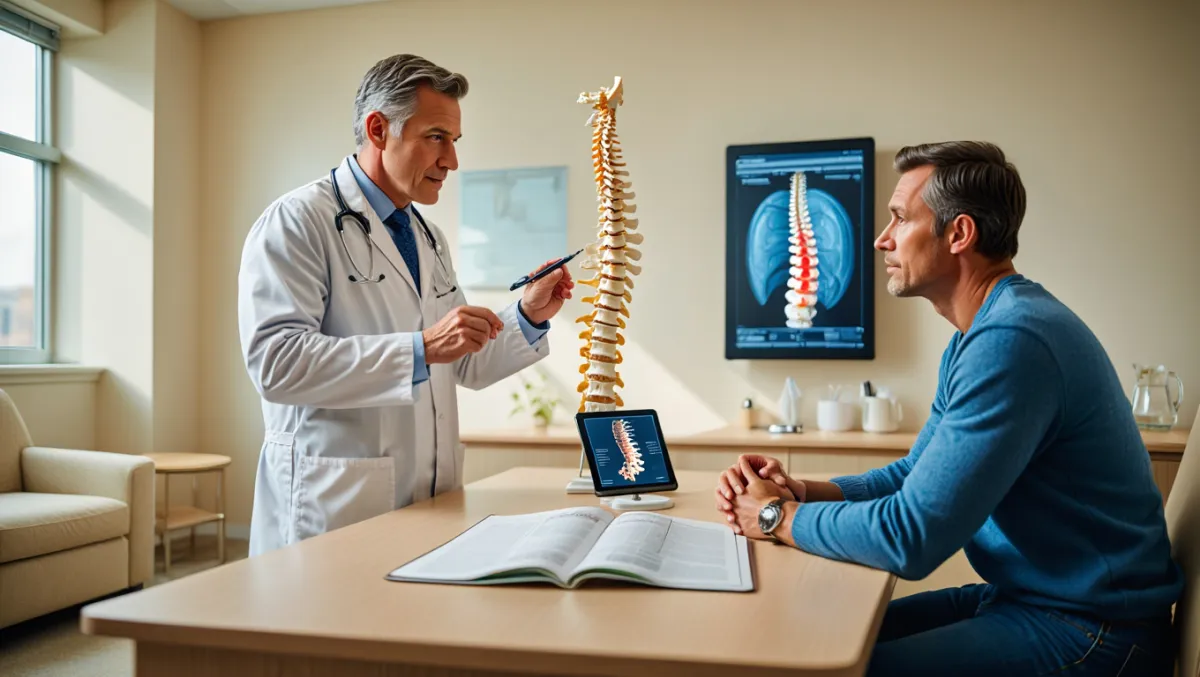
Voted Best Spine Doctor
Over 30 Years Experience in Orthopedic & Neuro Spine Surgeries.

Dr. David L. Greenwald, M.D., F.A.C.S.
Neurosurgeon | Spine Surgeon | Regenerative Medicine
Dr. David L. Greenwald, MD, FACS, is a board-certified spine surgeon with extensive experience diagnosing and treating radiculopathy, a condition that occurs when a nerve root in the spine becomes compressed or irritated. This can cause pain, numbness, tingling, or weakness that radiates from the spine into the arms or legs, depending on the affected area. Dr. Greenwald uses advanced imaging and nerve studies to identify the precise location and cause of the compression—whether from a herniated disc, bone spur, or spinal stenosis. He tailors treatment plans to each patient’s needs, starting with non-surgical therapies and progressing to minimally invasive surgical options when necessary, helping patients throughout South Florida achieve long-term relief and improved mobility.
Book your Spine Care Consultation Today!


Desert Spine and Pain
Patient Centered & Partner Focused
Quick Links
Resources
Connect With Us
© Desert Spine and Pain. 2026. All Rights Reserved. Sitemap

